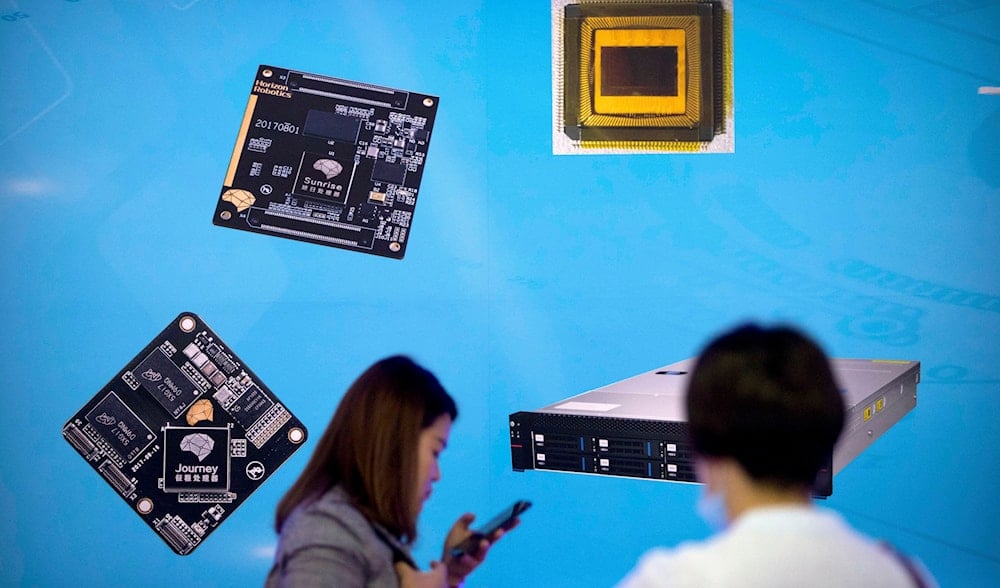China warns foreign-made chips and software may enable data theft
China’s security ministry warns that foreign-made chips and software may include hidden backdoors used to steal sensitive data and enable surveillance.
-

In this May 18, 2018, file photo, visitors walk past a display showing microchips and circuit boards at the 21st China Beijing International High-tech Expo in Beijing. (AP)
China’s Ministry of State Security (MSS) has issued a warning over the potential threat posed by foreign-manufactured microchips, smart devices, and software, cautioning that they may be embedded with hidden access mechanisms aimed at stealing sensitive data.
In a statement published on its official WeChat account, the MSS said that certain products developed abroad may be deliberately designed with backdoors, unauthorized access features added during design or production stages.
“Some foreign-manufactured microchips, smart gadgets, or software may be deliberately equipped with unauthorized access features (‘backdoors’)... Using special signals, companies may gain remote access to these devices, collect and transmit specific data – for example, through automatically activated cameras or microphones,” the ministry stated.
While some backdoors are intended for developers to patch vulnerabilities, the MSS warned that if misused, they can be exploited by malicious actors to gain unauthorized access to sensitive Chinese systems and classified information.
To counter this risk, the ministry stressed that personnel with access to confidential data should only use domestically produced hardware and software. The move is aimed at minimizing exposure to foreign surveillance and protecting China’s national security infrastructure.
US-China tech tensions
The warning follows recent developments in the US-China tech landscape. Last week, American chipmaker Nvidia confirmed it had received approval from the Trump administration to sell its H20 artificial intelligence chips to China, a decision that has drawn scrutiny amid ongoing concerns over technology exports and cybersecurity.
The decision followed a series of high-level engagements between NVIDIA's CEO, Jensen Huang, and senior US officials, including President Donald Trump. Huang visited Washington earlier this month to press the case for American AI leadership, highlighting the critical role NVIDIA plays in the global AI supply chain.
He warned that US companies risk falling behind if they're cut off from key markets like China, where many AI developers rely on NVIDIA's platforms and tools.
In parallel, Huang made diplomatic overtures in Beijing, meeting with Chinese officials and reiterating the company's intent to operate within the boundaries of US law while maintaining commercial ties with Chinese partners.
US export restrictions imposed in late 2023 had barred the sale of several high-end chips to China on "national security" grounds. In response, NVIDIA developed the H20 and RTX Pro GPUs, tailored to meet revised export criteria.

 3 Min Read
3 Min Read









